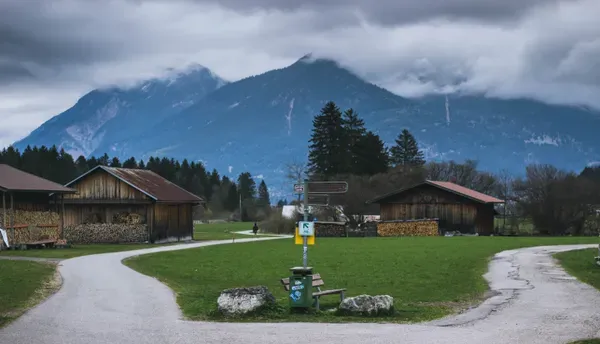The Benefits of Permaculture in Managed Farmland Near Bangalore
Antony Thilak W |
29 December, 2023 |

Introduction
In the vicinity of Bangalore, a city known for its technological advancements, there's a quiet revolution unfolding in the agricultural sector. Permaculture, a design philosophy that emulates the patterns found in natural ecosystems, is transforming how farming is approached. Spanning over 1000 words, this blog post explores the multifaceted benefits of permaculture in managed farmland near Bangalore, focusing on its environmental, economic, and social impacts.
Permaculture's Rising Significance in Bangalore
Bangalore's unique geographic and climatic conditions present specific challenges and opportunities for agriculture. Rapid urbanization and climate change are pushing farmers towards more sustainable practices. Permaculture, with its emphasis on ecological harmony and resource conservation, is emerging as a fitting response to these challenges.
Environmental Benefits
Biodiversity Enhancement: Permaculture encourages a diverse mix of species, which helps in creating a balanced ecosystem.
Soil Health and Conservation: Techniques like no-till farming, composting, and green manuring enhance soil fertility, reduce erosion, and combat land degradation.
Water Management: In Bangalore's semi-arid climate, permaculture's water conservation practices like rainwater harvesting and swale construction are invaluable.
Climate Change Mitigation: Diverse permaculture plots are better equipped to withstand climatic extremes, making them crucial in the face of global climate change.
Economic Benefits
Cost Reduction: By minimizing the reliance on chemical inputs, permaculture significantly cuts down farming costs.
Sustainable Yield: Although initial yields may be modest, permaculture plots tend to offer more sustainable and consistent outputs over time.
Market Opportunities: Bangalore's growing demand for organic and eco-friendly produce opens lucrative market avenues for permaculture products.
Social and Community Benefits
Community Building: Permaculture projects often foster stronger community bonds through shared initiatives and learning.
Knowledge Transfer: These practices empower local farmers with sustainable techniques, contributing to generational knowledge and skill transfer.
Health and Wellbeing: Permaculture promotes a healthier lifestyle through organic produce and a deeper connection with nature.
In-Depth: Permaculture Success Stories Near Bangalore
Examining a few success stories of permaculture implementations near Bangalore offers practical insights. These might include narratives from small family farms or larger agricultural enterprises that have embraced permaculture, detailing their journey, challenges, and the impact on their yield and community.
Adapting Permaculture to Bangalore's Environment
Given Bangalore's climate and topographical diversity, certain permaculture techniques are particularly effective:
Layered Farming Systems: Utilizing vertical space to grow various crops at different heights, optimizing land use.
Integrated Pest Management: Leveraging Bangalore's biodiversity to control pests naturally.
Drought-Resilient Cultivation: Choosing crops that thrive in drier conditions, a necessity in the region.
Agroforestry Practices: Combining agriculture with tree cultivation, beneficial in terms of soil health and biodiversity.
Challenges in Transitioning to Permaculture
The shift from traditional to permaculture farming isn't without challenges. These include the initial learning curve, potential initial yield reduction, and the need for mindset change among traditional farmers. Solutions involve robust training programs, community support networks, and possibly governmental incentives and support.
Permaculture's Role in Urban Settings
In Bangalore, urban permaculture is also gaining traction. Rooftop gardens, balcony permaculture, and small community gardens are examples of how these principles are applied in urban settings, contributing to food security and environmental sustainability.
The Way Forward: Policies and Education
For widespread adoption of permaculture, supportive policies from governmental bodies are crucial. Additionally, educational initiatives in schools and communities can play a significant role in popularizing these concepts among the younger generation.
Conclusion
Permaculture in the farmlands near Bangalore is more than an agricultural practice; it's a sustainable living philosophy. It offers a path to environmental restoration, economic resilience, and community enrichment. As we face pressing environmental and social challenges, the principles of permaculture present a hopeful blueprint for a sustainable future. Embracing these practices could be key to achieving long-term ecological balance and food security in the Bangalore region and beyond.
